On the Cutting Edge
Arts and Sciences faculty are shaping important scientific and social conversations.
The Impact of Climate Change
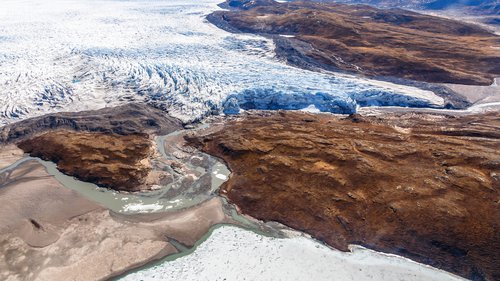
Tripti Bhattacharya, Thonis Family Professor of Earth and Environmental Sciences, was co-author on a study published in Nature Communications which explored the way changes in the Arctic driven by climate change can have an effect on the tropics. The team's findings underscored how increased continental greening and the receding of ice sheets may lead to a rise in summer rainfall in places that are already receiving excessive amounts of rain, such as Southeastern Asia, Northern India and West Africa.
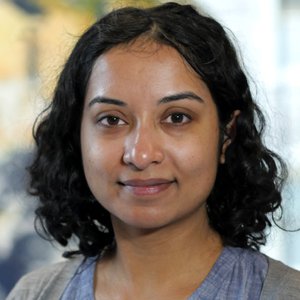
Bhattacharya also led a study where researchers used ancient climate data to predict how the summer monsoon may change in the North American Southwest. The team’s paper, published in the journal AGU Advances, suggests that a stronger monsoon in the middle Pliocene epoch (approximately 3 million years ago) can explain past wetter conditions, with implications for the future. The researchers suspect that higher temperatures could cause stronger and more widespread summer rainfall across the southwest United States.
Record Number of CAREER Awards
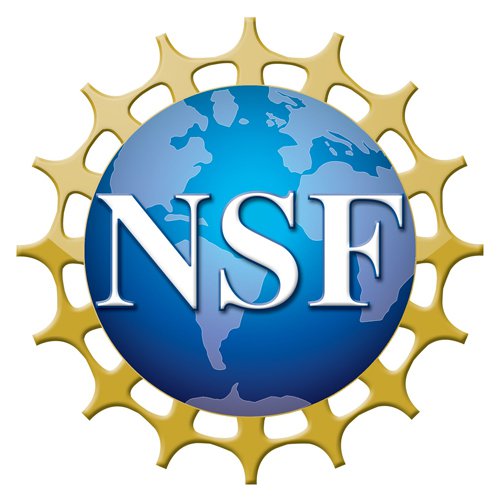
Five A&S faculty members have been awarded National Science Foundation (NSF) CAREER awards. That number marks the most-ever awarded to A&S in a single year. According to the NSF, the CAREER program is their most competitive award in support of early-career faculty. Around 500 are conferred annually.
This year’s CAREER award recipients are John Franck, assistant professor of chemistry; Brett Jakubiak and David Kellen, both assistant professors of psychology; Davoud Mozhdehi, assistant professor of chemistry; and Minghao Rostami, assistant professor of mathematics.
The five-year awards empower each faculty member to integrate research into instruction and encourages awardees to think creatively about how their research will impact their education goals and, conversely, how their education activities will feed back into their research.
Examining the Doctrine of Christian Discovery

Philip Arnold, associate professor of religion, is principal investigator on a grant awarded to Syracuse University by the Henry Luce Foundation to examine and challenge the theology and legal theory of the Doctrine of Christian Discovery. The project will explore how the doctrine and related narratives, including the Columbus story and Manifest Destiny, established codes of domination that continue to impact Indigenous peoples in America and around the world today.
Diversifying Astrophysics
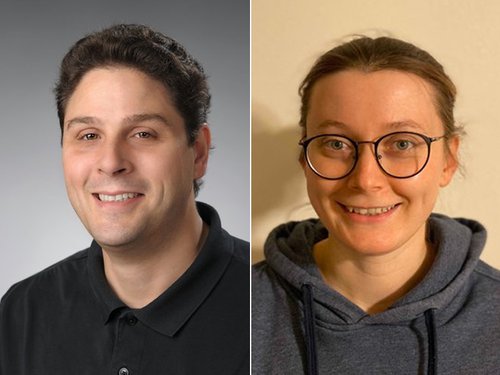
Through a National Science Foundation Partnerships in Astronomy and Astrophysics Research and Education grant of more than $1 million, Syracuse University will help create a new research and education program to diversify the field of gravitational-wave astrophysics, specifically to increase the number of Hispanic/ Latinx students. Principal investigators at Syracuse University are Stefan W. Ballmer, professor of physics, and Georgia Mansell, assistant research professor of physics.
Searching for the Universe’s Tiniest Clues

With grants from the National Science Foundation and the Department of Energy, physics Professors Mitch Soderberg and Denver Whittington are leading studies on neutrinos and working to enhance neutrino detection technology. One of the most fundamental, abundant and lightest subatomic particles, neutrinos are produced by nuclear reactions and radioactive decay. By studying neutrino interactions, they hope to understand why all of the “stuff” in the universe is made from matter, not antimatter.
Appointed by NYS Governor
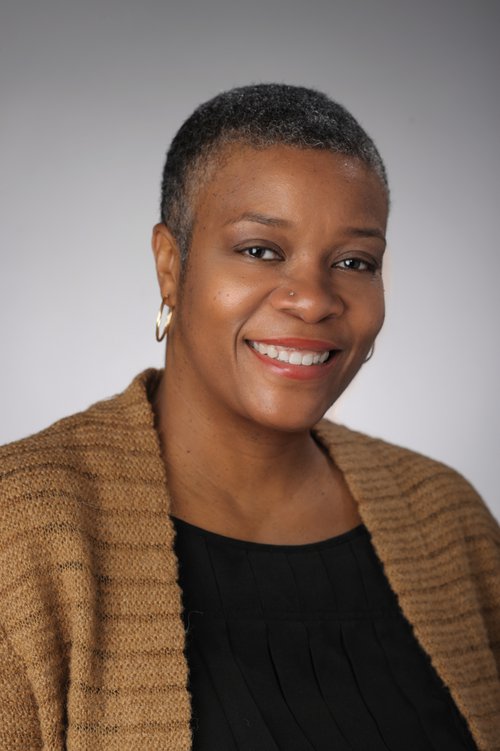
Kishi Animashaun Ducre, associate dean for diversity, equity and inclusion and associate professor of African American studies, has been appointed to the 400 Years of African American History Commission by New York Gov. Kathy Hochul ’80. The commission, whose name is derived from the 400- year anniversary of the arrival of the first enslaved Africans in the English colonies in August 1619, serves to educate the public on the impact Africans and African Americans have made on the United States and New York State since 1619.
The Mysteries of Infant Speech Processing

Beth Prieve, professor of communication sciences and disorders and founder of the Pediatric Auditory Laboratory in A&S, was awarded a $440,000 grant from the National Institutes of Health to explore how infants process human speech. The study will make use of a new auditory tool developed by co-investigator Ross Maddox, associate professor of biomedical engineering and neuroscience at University of Rochester Medical Center, that uses spoken words from an Alice in Wonderland audiobook to measure infant auditory response. The project has the potential to move the field forward in understanding language acquisition and communication disorders.
Advancing Latino History and Culture in the United States
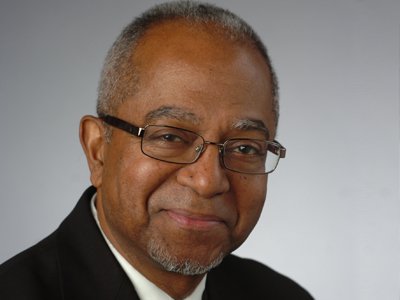
Silvio Torres- Saillant, professor of English and Dean’s Professor of the Humanities, is one of 18 members selected for the Smithsonian Institution’s National Museum of the American Latino Scholarly Advisory Committee. The committee, which includes leaders from across various academic disciplines, will guide the museum on important matters and provide input on its comprehensive plan to preserve, document, display and promote knowledge of U.S. Latino history, art and culture.

